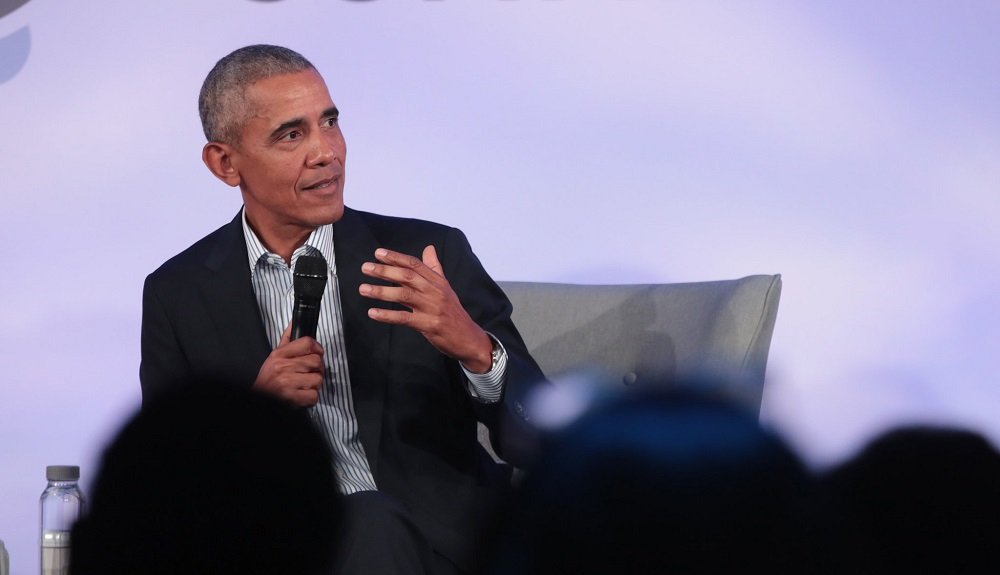The Longest Year is 360’s 2020 review series. From now until Christmas, the leadership team will be looking back at the most impactful communications moments and trends from a year of profound change and challenge. Visit the Longest Year hub to read more.
News and Insights
How we talked past each other in 2020 — The Longest Year
December 4, 2020
In July, 160 internationally renowned writers and academics signed an open letter to Harper’s Magazine challenging the phenomenon of cancel culture and the threat it poses to freedom of speech and creativity.
Authored by critic Thomas Chatterton Williams and co-signed by JK Rowling, John Banville, Malcolm Gladwell, and Noam Chomsky, among others, the letter opened by declaring that “our cultural institutions are facing a moment of trial”.
It argued that in present times it is “all too common to hear calls for swift and severe retribution in response to perceived transgressions of speech and thought” and described “a new set of moral attitudes and political commitments that tend to weaken our norms of open debate and toleration of differences in favour of ideological conformity”.
It criticised a “tendency to dissolve complex policy issues in a blinding moral certainty” and said that “the way to defeat bad ideas is by exposure, argument, and persuasion, not by trying to silence or wish them away.”
HONOURABLY BORN
In the last twelve months alone, everyone from Adele to Aristotle has experienced the furious turned thumb of cancel culture. Most would recognise that this social media phenomenon was initially born out of an honourable attempt to hold high-profile individuals and institutions accountable for what they do and say. In many instances, it has given marginalised groups a platform to collectively challenge discrimination in all its many guises.
This mechanism was quickly seized upon by predominantly younger, left-leaning movements as a means of expanding existing definitions of what qualifies as racism, sexism, or homophobia and demanding the adherence to a more progressive ideal of linguistic codes and behaviours.
The Harper’s letter signatories were of the view that this culture had gone too far; and that it had become decidedly un-diverse in its call for greater diversity.
The open letter unleashed a firestorm of columnist fury on the rights and wrongs of cancel culture, triggering counter letters and counter-counter letters, with most people falling into one of two distinct categories: those who view it as a legitimate threat to free speech and those who see it as just the latest iteration of free speech.
However, while the rights and wrongs of this phenomenon are largely subjective, the more curious question is around its overall effectiveness.
The Harper’s letter argued that cancel culture is in fact potentially counterproductive to the causes it seeks to advance; the signatories warned against allowing a crude and inflexible right-versus-wrong narrative to “harden into its own brand of dogma or coercion, which right-wing demagogues are already exploiting”. In other words, those who aren’t with us are against us.

BEING RIGHT VERSUS BEING EFFECTIVE
In 2019 former US President Barack Obama said that “if all you’re doing is casting stones, you’re probably not going to get that far”. He spoke of a trend whereby many young people felt being as “judgemental as possible” was the best way to force change and cautioned them that the world was “messy” and full of “ambiguities”.
Admittedly, change comes in many forms. However, real agents for change recognise that progress requires an ability to bring people with you, not leave them on the naughty step.
This means being able to recognise the aspirations, challenges, and biases of a diverse cohort of people and then articulating a collective vision that feels personal, relatable, and attainable. Progress, be it social, political, or economic, usually requires compromise, cajoling, consensus building, and education. Political or moral purity rarely works.
Speaking at a recent Munk Debate, writer and comedian Stephen Fry lamented the great human failing of “preferring to be right than effective”. Shutting down outright discrimination is commendable but shutting down clumsy good intentions or ignorance may prove counterproductive.
The temptation to create an us-against-them narrative, whereby everyone who agrees with you is good and virtuous and everyone who disagrees is bad, ignorant, and unkind, may generate headlines and high fives, but coercing people into sharing your opinion leaves little room for nuance or education, and often succeeds only in driving the undecided into the welcoming arms of the opposition.
Opposing viewpoints, rather than being wished away or suppressed, should be publicly tested, challenged, and unpicked; this is a fundamental process in preventing popular discourse or orthodoxy from becoming staid, complacent, and flabby.
ARE WE INSIDE A BUBBLE?
Cancel culture potentially overestimates the transformative power of online activism.
The “Twitter bubble” can sometimes be exactly that. Only 30% of Irish adults have a Twitter account and just 41% of them use it daily. Figures are similar in other parts of the Western world.
In contrast, 81% of the Irish population listen to radio every day. Of course, traditional and social media enjoy a very symbiotic relationship, but it is still reasonable to assume that a lot of trending Twitter debate simply bypasses most of the population.
Online activism is clearly a very potent means of driving awareness of important issues; the #BlackLivesMatter and #MeToo movements both started on social media, captured the public imagination, and in many ways reset how we talk about race and gender issues.
However, converting “awareness” into meaningful outputs typically requires a more strategic approach; it needs to be leveraged alongside clear policy asks, very targeted lobbying or advocacy efforts, diverse buy-in, and robust political and legislative muscle.

CANCELLERS-IN-CHIEF
Cancel culture is now as much a part of our mainstream as Zoom quizzes and TikTok dance routines. It looms large over Big Business, cultural institutions, public figures, and private citizens.
The Harper’s letter was published with the clear intention of challenging this culture and reasserting the principles of free speech. Explaining the signatories’ motivations in a recent interview, Thomas Chatterton Williams cited outgoing US President Donald Trump as the “Canceller-in-Chief”, but argued that “the correction of Trump’s abuses cannot become an over-correction that stifles the principles we believe in”.
Has the Harper’s Letter succeeded in reasserting these principles? The jury is still out. While its intentions were noble, intellectual elites decrying the loss of abstract liberal principles may do little to halt the fast-twitch sensibilities of social media.
Others may question whether the signatories’ issue was rooted in principle or rather disgruntlement with today’s list of cancel-worthy sins. Either way, it would appear a little more listening and compassion is required on both sides.
More pertinent is whether cancel culture has the genuine capacity to inspire change in minds, thoughts, and policies or instead, can only coerce people into muted silence.
As columnist Tanya Sweeney put it in The Irish Times, shutting down the conversation may just mean that “ordinary people, still learning the nuances of, say, race relations or sexual harassment or gender identity, are going to back away. And with it, the possibility for change fades”.
As we reflect on the year just gone, the question cancellers must ask themselves is whether their modus operandi represents the most effective means of achieving progress.

About the author
With his intelligent communications skillset and extensive media connections, Paddy helps clients build stand-out messaging and achieve their business objectives, whether they’re a start-up raising seed capital or an established player pushing for industry reform or telling their employer brand story. Paddy has been published in a number of national publications, including the Business Post, Irish Independent, Fora.ie, and The42.ie on the theme of strategic communications and reputation management.
Cover photo credit: Rob Stothard, Getty Images.
